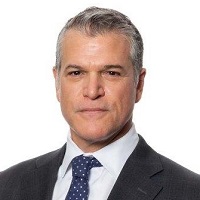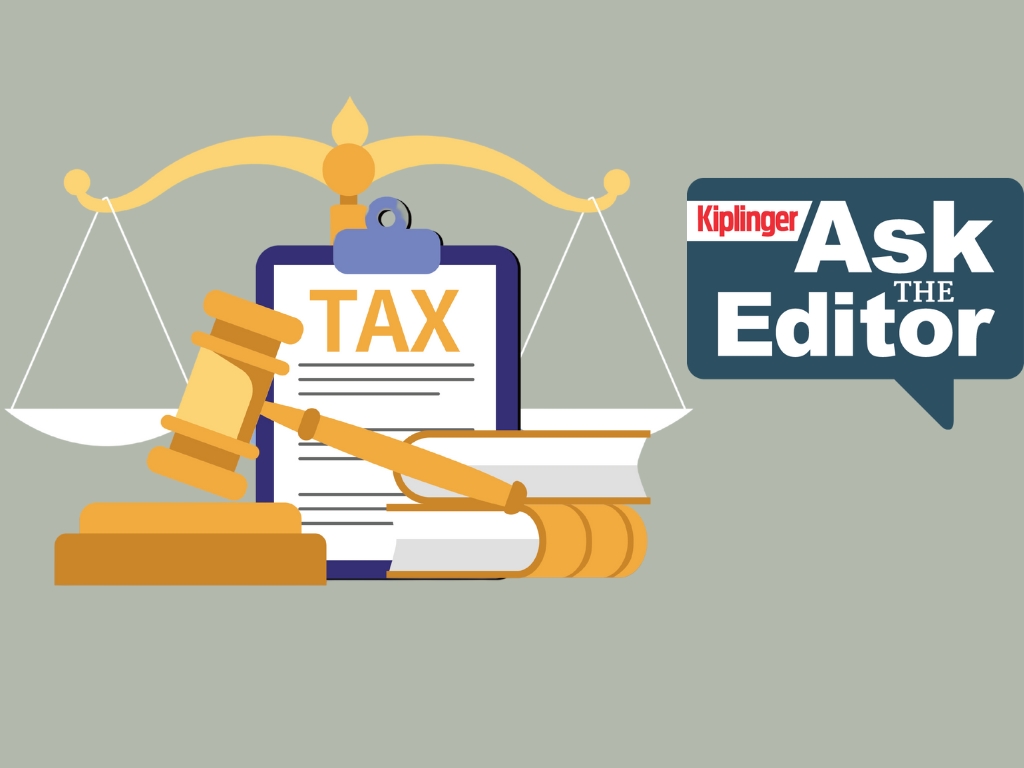As Florida Condo Prices Fall, What’s a Condo Seller to Do?
Mandates that associations have adequate reserve funds for maintenance and repairs mean older buildings could be retired to make way for new development.


Condo prices in Florida have been steadily falling, fueled by an increasing rate of motivated sellers.
Certainly, high interest rates are a part of this trend, but a closer look suggests that changes to the Florida Condominium Act — the state’s laws governing condominium associations — may be a major factor behind the market trend and also suggests that a development boom could be coming.
Fundamentally, real estate demand in Florida has remained strong. The Sunshine State saw a significant influx of migration during the pandemic, according to the Census Bureau, and those trends have largely remained steady.

Sign up for Kiplinger’s Free E-Newsletters
Profit and prosper with the best of expert advice on investing, taxes, retirement, personal finance and more - straight to your e-mail.
Profit and prosper with the best of expert advice - straight to your e-mail.
What’s changed, though, is a major amendment to the Florida Condominium Act covering condo associations, which was passed following the collapse of the Champlain Towers condominium complex in 2021. That tragedy was likely due to significant deferred maintenance issues and a lack of adequate reserves to address the structural maintenance issues.
Under the new amendments, condo associations have new standards that mandate that associations maintain adequate reserve funds for maintenance and repairs.
By the end of this year, condo associations in Florida must obtain a Structural Integrity Reserve Study that outlines what reserves must be collected to finance the repairs and maintenance of critical components of the building over the next 10 years based upon the current condition of the building. If any components of the building, such as the roof or balconies, are past their estimated useful life, it is likely those components will be required to be repaired or replaced right away.
What does this mean?
All this means that condo owners in Florida — especially those in older buildings in need of more attention — are suddenly facing (or are soon to face) dramatic hikes to their monthly condo association fees and, potentially, significant special assessments.
The scramble to bring buildings into compliance means that condo association fees in many cases may increase to an amount that is more than owners’ mortgage payments — potentially leading middle- and fixed-income Floridians into financial chaos.
Owners who anticipate that they will not be able to afford the mandated increases are understandably moving aggressively to sell their units, bringing a flood of motivated sellers into the market.
But buyers don’t want a unit in an aging building requiring expensive mandated upgrades with hefty COA fees and special assessments. For a comparable price, buyers can likely purchase a unit in a much newer building, avoid surprise increases in COA fees and special assessments and get vastly better value for their money.
It’s hurting the middle and lower end of the condo market. There is a serious concern that if the values of these condos drop too fast and a high percentage of unit owners cannot pay their COA fees, mortgage lenders will no longer be willing to lend against the units in those communities. That would essentially make those units unsellable since no buyer could get a regular mortgage loan to finance the purchase. If this happens, the condo associations may fail and be forced to declare bankruptcy.
Owners of luxury condos can handle increased costs
In contrast, the luxury condo market in Florida is still going strong. For the most part, luxury buildings and luxury owners aren’t facing the same sort of squeeze that middle-income buildings are seeing since owners in these projects are more able to afford any increased COA fees and special assessments. Also, the majority of luxury condo projects are newer, but even the older buildings have generally been better maintained than middle- and lower-end condos.
For developers of luxury properties, the situation faced by older condo buildings may create more development opportunities.
Even before the recent changes in the condo act, many of the older condo buildings in South Florida were facing extremely high repair and replacement costs as buildings deteriorated and the cost of replacement components increased. In many cases, the unit owners determined that it no longer made sense to keep their units since the cost of maintaining the condo building would continue to increase, but the value of their units would continue to gradually decrease.
Because development sites are in short supply, in many cases, the land value per unit exceeds the market value per unit for older condo buildings. For many condo communities, the real asset is the value of their share of the land under their building.
Increasingly, condo owners are uniting to bring their units to market and sell in bulk to a developer, who can in turn terminate the condominium, demolish the existing structure and develop a new building. In 2023, South Florida saw the highest number of bulk condo buyouts since 2019.
What should condo owners do?
Condo owners need to move quickly if they want to maximize the value they receive for their units. If they wait too long, they’ll lose a lot of the leverage they need in negotiations. In order to get the best offer for their building, owners should be unified as a COA to bring their properties to market.
Typically, a strong majority of owners is necessary to get a deal done. The exact number varies based on the language in the condo documents and whether the current version of the condo act applies. In some cases, percentages as low as 75% are sufficient. However, under the current version of the condo act, 95% of the voting interest is required to terminate a condominium. An experienced condo attorney should assist the condo association to determine what percentage would be required for a particular condo association.
COA leadership should be actively considering what’s in the best interest of their owners and educating them on how these deals can be structured. If you’re a condo owner in an older building in Florida and your COA hasn’t brought up the idea of a sale, ask your directors if they have considered the idea.
These bulk condo buyout deals can be difficult and risky transactions for developers, as they tend to result in litigation from minority unit owners who do not vote in favor of a bulk sale. A recent decision by a Florida appeals court may further complicate the ability of older condominiums to terminate.
Florida has also instituted a number of incentive programs to encourage developers to continue to invest in the state, including programs designed to boost affordable housing. The Live Local Act, for instance, has spurred a slate of development that’s targeted toward homes for middle- and lower-income families that could relieve some of the pressure generated by the condo law changes.
For now, those laws are turning loose powerful market forces that will cause real pain for certain condo owners but create real opportunity for condo developers. It will make for a fascinating period in the state’s fabled real estate history.
Related Content
- Retirees, A Healthy Condo Has a Flush Reserve Fund
- Is Now a Good Time to Buy a House?
- Six Reasons to Use a Real Estate Agent When You Sell
- Four Reasons to Buy When You Downsize for Retirement
- Why Luxury Home Sales Are Surging Right Now
Profit and prosper with the best of Kiplinger's advice on investing, taxes, retirement, personal finance and much more. Delivered daily. Enter your email in the box and click Sign Me Up.

Drawing on his prior experience as a banker and general counsel for a private equity firm, Joe Hernandez counsels a variety of clients in negotiating and structuring complex commercial real estate transactions. He represents real estate developers, financial institutions, private equity firms, family offices and public entities in all phases of such transactions, with deals across the United States, Latin America and the Caribbean.
-
 Stock Market Today: Stocks Step Back From New Highs
Stock Market Today: Stocks Step Back From New HighsInvestors, traders and speculators continue the low-volume summer grind against now-familiar uncertainties.
-
 Ask the Editor — Tax Questions on the New Senior Deduction
Ask the Editor — Tax Questions on the New Senior DeductionAsk the Editor In this week's Ask the Editor Q&A, we answer tax questions from readers on the new $6,000 deduction for taxpayers 65 and older.
-
 Do You Need Flood Insurance? I'm an Insurance Expert, and Here's Where You Can Get It
Do You Need Flood Insurance? I'm an Insurance Expert, and Here's Where You Can Get ItStandard homeowners insurance does not cover flood damage, so you might need separate flood insurance, which you can get either through FEMA or private companies. Here are the details.
-
 I'm an Investment Professional: These Are the Three Money Tips I'm Giving My College Grad
I'm an Investment Professional: These Are the Three Money Tips I'm Giving My College GradCollege grads can help set themselves up for financial independence by focusing on emergency savings, opting into a 401(k) at work (if it's offered) and disciplined, long-term investing.
-
 New SALT Cap Deduction: Unlock Massive Tax Savings with Non-Grantor Trusts
New SALT Cap Deduction: Unlock Massive Tax Savings with Non-Grantor TrustsThe One Big Beautiful Bill Act's increase of the state and local tax (SALT) deduction cap creates an opportunity to use multiple non-grantor trusts to maximize deductions and enhance estate planning.
-
 Know Your ABDs? A Beginner's Guide to Medicare Basics
Know Your ABDs? A Beginner's Guide to Medicare BasicsMedicare is an alphabet soup — and the rules can be just as confusing as the terminology. Conquer the system with this beginner's guide to Parts A, B and D.
-
 I'm an Investment Adviser: Why Playing Defense Can Win the Investing Game
I'm an Investment Adviser: Why Playing Defense Can Win the Investing GameChasing large returns through gold and other alternative investments might be thrilling, but playing defensive 'small ball' with your investments can be a winning formula.
-
 Five Big Beautiful Bill Changes and How Wealthy Retirees Can Benefit
Five Big Beautiful Bill Changes and How Wealthy Retirees Can BenefitHere's how wealthy retirees can plan for the changes in the new tax legislation, including what it means for tax rates, the SALT cap, charitable giving, estate taxes and other deductions and credits.
-
 Portfolio Manager Busts Five Myths About International Investing
Portfolio Manager Busts Five Myths About International InvestingThese common misconceptions lead many investors to overlook international markets, but embracing global diversification can enhance portfolio resilience and unlock long-term growth.
-
 I'm a Financial Planner: Here Are Five Smart Moves for DIY Investors
I'm a Financial Planner: Here Are Five Smart Moves for DIY InvestorsYou'll go further as a DIY investor with a solid game plan. Here are five tips to help you put together a strategy you can rely on over the years to come.